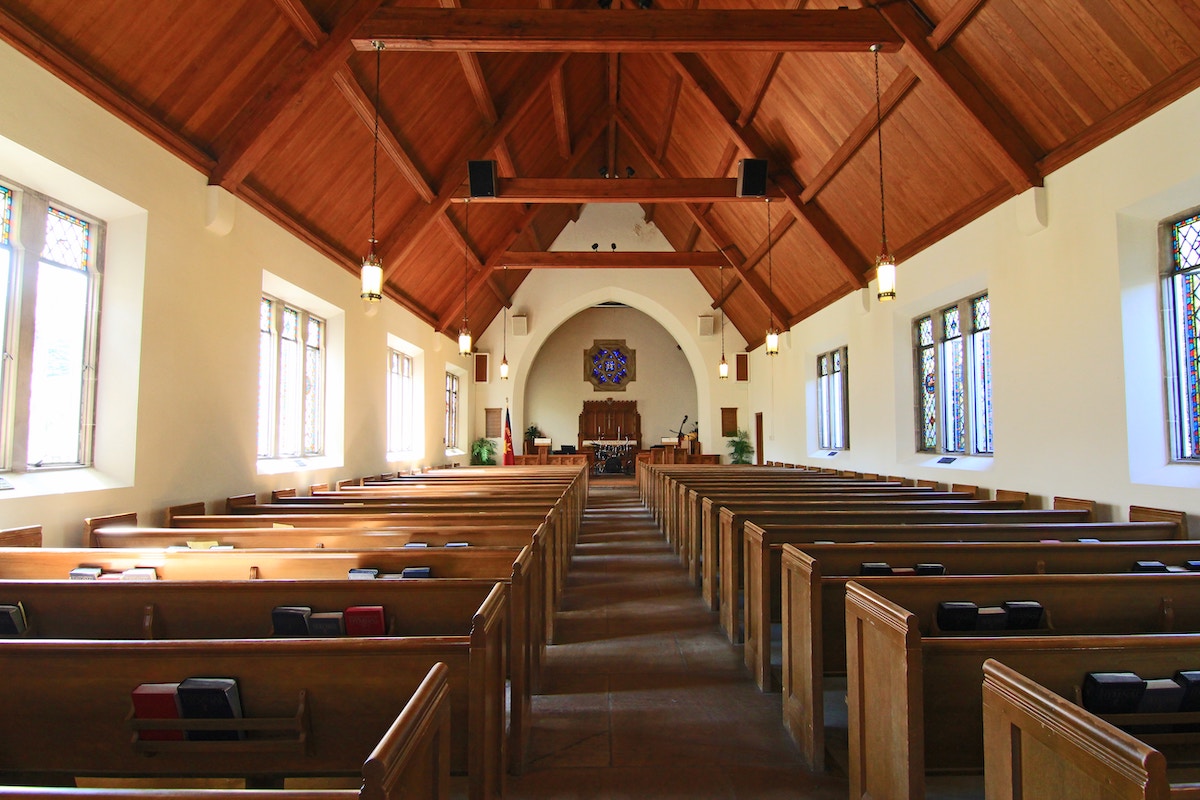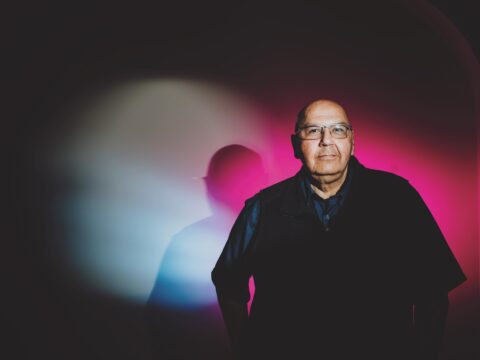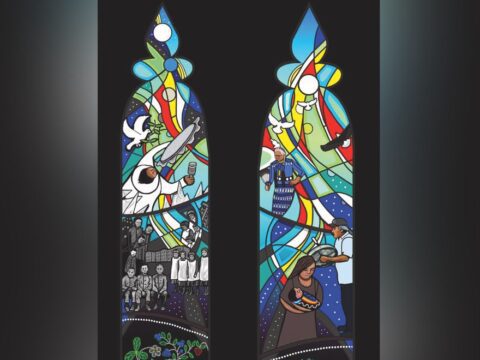In 2003, Brian Clarke, then an instructor at Emmanuel College, University of Toronto, was approached by Rev. Stuart Macdonald, from neighbouring Knox College, to analyze the 2001 Statistics Canada census on religion. Their 2017 book, Leaving Christianity, also includes analysis of the 2011 National Household Survey. Clarke spoke about the 2021 census with Andrew Faiz.
Andrew Faiz: In this latest census, almost 13 million Canadians state they have no religious affiliation, up from about eight million in 2011. The number of people who claim some church affiliation is also declining. What’s happening here?
Brian Clarke: In the 1970s, you had young people, slightly skewed to male, saying they had No Religion. What we’re seeing in every census, as people age, is that the number of people with No Religion keeps growing. Now, it’s not just young people; it’s older people too. No Religion began primarily as an urban phenomenon, located in the big cities. Today in Newfoundland, 16 percent say they have No Religion. I taught in Newfoundland 20 years ago. Religion was a really big thing. Sunday morning the streets were pretty deserted in St. John’s because people were in church. There really is this tectonic shift that’s taking place in society. No Religion is not a temporary waystation in life: people are leaving, and they aren’t coming back. This has never happened before.
AF: Second- and third-generation immigrants are also moving toward No Religion. The Korean Presbyterian community, for example, built a lot of churches in the 1980s and ’90s. Now, a lot of those congregations are closing.
BC: We do know there’s a generational effect here. Particularly into the third generation. They may not know the language of their group, or if they do, it’s pretty tenuous. By the time you get to the third generation, and even further, they start looking very much like the rest of the Canadian population in terms of education, social status. And religious behaviour starts looking like what other Canadians are doing.

AF: Together with a long list of Christian denominations in the survey, there’s another category: “Christian, Not Otherwise Specified.” What can you tell me about this group?
BC: Christian, Not Otherwise Specified is eight percent of the population now. It keeps getting bigger. A portion are evangelical Christians, and that’s how they prefer to identify. But Stuart and I managed to drill down into the 2001 survey and noticed that 90 percent of this category, in terms of demographics — geography, age, urban orientation — looks very close to the demographics of No Religion. They’re on the way to disaffiliation.
AF: So this category might be a parking spot for people with weak ties to Christianity. Would they migrate to No Religion on a subsequent census?
BC: Exactly. No Religion is probably a lagging indicator of disaffiliation. In other words, a lot of people when they’re asked, “What’s your religion?” will identify as something even if they’re actually marginally affiliated. In a later census, as people get older, they switch to saying, “No, I don’t have a religion.” For example, in 2011, the National Household Survey revealed that Roman Catholic census affiliates had stagnated — indicating that Roman Catholic identity and affiliation was beginning to weaken. In the 2021 census, we are seeing that those who had identified as Roman Catholic are switching to No Religion. Former Roman Catholics identifying themselves as having No Religion is now, for the first time, an established trend.
AF: When I add those who state they have No Religion to those who vaguely identify as Christians in the latest census, that number pushes upwards of 16 million people. Among those who do claim a specific Christian denomination — roughly another 16 million — nearly all of those denominations are declining. Which faith groups are currently increasing their numbers?
BC: Religions that are growing right now in Canada are world religions other than Christianity. Islam, Hinduism, Sikhism. That’s an immigration thing. Judaism is flat or declining.
AF: The United Church of Canada is down 40 percent, which is the biggest decline among all the Christian denominations. Despite the changing demographics of our society, only 2.5 percent of United Church of Canada members are visible minorities. Why is that?
BC: In 1961, the demographic profile of the United Church was very close to the demographic profile nationally. Fast forward to now, or 10 years from now, and the United Church is distinctly older than the general population. That’s one of the reasons why it’s so white. Because it reflects the population of 1961, 1971.

AF: Why isn’t the United Church attracting people of colour?
BC: Immigration status is a pretty good indicator of whether people are going to be engaged with organized Christianity, organized religion. A good chunk of Christian visible minorities come from a Roman Catholic background. I mean, Filipinos are a classic case in point. The United Church is a distinctly Canadian phenomenon. When people arrive in Canada, it’s not an identity they recognize.
More from Broadview:
- Why these Asian Canadians are leaving their parents’ churches
- Will churches get back to pre-pandemic attendance?
- The United Church has an ambitious plan to grow its membership
AF: Only a third of Canadians aged 25 to 34 years identify as Christians. Are churches failing to reach them?
BC: Churches used to be really good at the whole process of intergenerational transmission. Sunday school enrolment was just expanding like gangbusters for everyone — United Church, Presbyterians, Baptists, Lutherans — in the 1950s. Churches couldn’t keep up. Sunday school enrolment peaked in either the late 1950s or very early ’60s, depending on the denomination. And then for every denomination, with the United Church in particular, it just fell off a cliff. Those people you would have expected, 15 years later, to make a profession of faith were not there. Tens of thousands of youngsters. In the ’60s, parents did have their children baptized. They sent them to Sunday school, and then their children stopped going. And that’s basically the story of the United Church. The Baptists are down by almost a third. So even denominations, like Baptists, that have very strong boundaries and are conservative theologically are not doing well.
AF: In the 2021 census, 1.2 million claim affiliation with the United Church. The church itself claims about 350,000 members, of whom a portion are regular participants. That’s a lot of people lagging before they state they have no religious affiliation.
BC: The ratio of members to census affiliates has remained steady since 2001. Based on existing trends, we can expect both to decline more or less in tandem.
AF: Do you find this depressing?
BC: I understand why people have this existential anxiety. But Christianity began as a small movement. Christianity initially grew one person, one family at a time. To me, the important thing is discipleship. Are we a Christian community? And is that obvious to people? And it should be.
***
Andrew Faiz is a writer and editor in Toronto.
This interview has been edited and condensed for length and clarity.
This Q&A first appeared in Broadview’s June 2023 issue’s Religion in Canada series with the title “Secular Shift.”















Church decline is a societal problem. Looking back to the 60’s and early 70’s as the author suggests, I recall almost everything being closed on Sunday. What other options did one have for socializing?
Today we are called to work on Sunday, we would rather walk the dog, go to the cottage, or take our kids to their sporting activity.
If the “church” is nothing more than a social club, rather than a time to worship and to read God’s Word, why not do other things “more important”.
WHY ?? not answered. My comment as a life time, active member of the Christian church is simple. The ETHOS of the Christian church is stuck in the believes & patterns of the past that we now know are based on an invalid sense of the Universe. Heaven is not just out there and we must escape from theis muddy earth. Today we know that the edge of the Universe is 14 1/2 Billion lightyears away AND our known Universe is expanding AND there are other galaxies beyond out own.
The Christian church wanted & tried to kill Galileo & Copernicus because their new awareness of the Universe contradicted the basic Christian Ethos. We don’t kill our scientists like Einstine or Hawkins – we just don’t go to church. We don’t go to heaven we go into the HEAVENS & soon to Mars. The theology of the 4th century just doesn’t hack it to any thinking person.
Second reason for the rapid decline is that so many social support measures that the church provided are now provided by the Province as the curch say very little from the pulpit that are the destructive areas of our society. I spoke once about a guaranteed income during an election & many of the congregation chastised me for being an NDPer; Jesus message of caring was irrelevant as the church has insisted it become
irrelevant. Wonderful people who built a CARING Canada, see Tommy Douglas; today legislation has been passed to finance my teeth that whose health is so essential to my well being.
My tongue they want to cut out & my brain. That’s a guaranteed death.
Church and Bible mythology have lost their power as more people become educated and learn to think critically. Old hymns are no longer relevant in the modern world. People are choosing individual spirituality because we are individuals with individual identities, cultural backgrounds and understandings that range from the literal to the mythical and the positive aspects of Biblical teaching have to be sifted out which can be an arduous process. As well, Christians as well as other religions and sects must understand that theirs is but one of many religions in the world; each one claiming to have the truth. It doesn’t make sense to a thoughtful person.
REPLY to Sheldon Grove.- TOTAL AGREEMENT with the added fiat that change is tough; faith change is nigh impossible as it is rooted in life after death rather than in living in Spirit today.
For my wife and I, it’s the anti-intellectualism and systemic hypocrisy of Christianity and churches.
So I’m not surprised by the free fall drop.